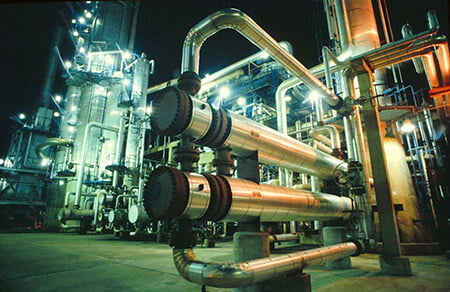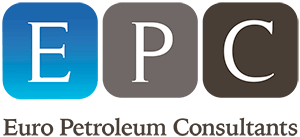2018 may have just started but we already expect to see continuing trends in the Refining / Petrochemicals sectors of the Energy Industry – important trends seen over the past few years.
Globally and in the GCC region the main areas of focus will include:
- Refinery / Petrochemicals Integration
- Oil to Chemicals
- Gas to Chemicals
- Alternate Feedstock for Crackers
- Production of Olefins & in particular On purpose Propylene Production
- Residue Upgrading & Fuel Oil reduction to comply with IMO 2020 specifications for Bunker Fuels
- Methanol as a fuel & MTO
- Operational Excellence & Digitalisation à leveraging the Cloud to drive OPEX
- Cyber Security
- Improving Safety
Looking briefly at each of these topics we can note the following.
Refining & Petrochemicals Integration & Oil to Chemicals Processes
Creating the maximum value uplift from crude oil drives greater integration between Refining & Petrochemical assets - in order to determine the highest value integration strategy requires intimate domain knowledge, not only about the process technology requirements but also the control and management systems necessary to optimise the operations of integrated facilities.
The trend to improve integration between Refining & Petrochemicals is driven by the expected growth in Petrochemicals globally and also the increased potential margins from such integration. Such opportunities may include maximising Propylene production in FCC units. These may be revamps of existing Units or new builds of High severity FCC units – equipped with very specific design features to achieve >20% yields of propylene which can then be used for Polypropylene production.
Creating the maximum value uplift from crude oil drives greater integration between Refining & Petrochemical assets
Gas to Chemicals
In many regions there is a strong interest in Gas to Chemicals with ongoing technology improvements:
- Gas Purification, Separation & Conversion of the Components;
- Syngas Generation;
- Ammonia, Urea & other Fertilisers Technologies;
- Methanol, DME, Formaldehyde;
- Synthetic Fuels: GTL & MTG Technologies;
- Olefins Technologies (MTO, MTP etc.)
Another interesting technology is the Single Step Gas-to-Chemicals using Oxidative Coupling of Methane.
Alternate Feedstocks for Crackers
What is the future of Naphtha Cracking? With low cost NGLs, are new naphtha crackers really needed? What is needed to make naphtha cracking competitive & provide attractive returns? These are some of the key questions that many producers are asking themselves & evaluating.
MTO & OCC: Alternative Feedstock to Produce Olefins
- MTO is an effective way to produce olefin with low cost and high ethylene recovery rate
- OCC technology is a solution to convert low value C4/C5 olefin streams into propylene and ethylene
- The integration of MTO & OCC to improve the selectivity of C2-C3 olefins
On purpose production of Olefins & MTO
This technology is not new but we are seeing a growing trend of on purpose Propylene production units (PDH) in different regions. Also MTO and MTP technologies were first introduced in China. This is a cost effective route to help balance the requirement for Propylene and hence help meet the growing demand for Polypropylene.
Methanol as a Fuel
Methanol can be a part of the solution for the 2020 Maritime Emissions Challenge and help meet regional ECA and global IMO marine emission targets in the coming years. Methanol is already being used as a marine fuel in certain regions e.g. Scandinavia. And this trend is expected to grow in the near future.
Petrochemicals: Polyolefins & Aromatics
Polyolefin Licensors are continuously looking for ways to improve the production efficiency of speciality plastics and films. One example is the development of new metallocene catalysts systems to produce olyethylene as the primary ingredient for a wide range of products and allows for converters easier and more efficient extrusion and conversion with less blocking, less waste & less downtime
There are also some interesting developments in aromatics production through the use of new feedstocks from refineries and advances in technologies to increase para-xylene production and overcoming methyl group deficiency to produce more xylenes
Residue Upgrading: Increasing Conversion
 With the 2020 IMO Bunker changes looming, this will be a major challenge for Refiners and also shipping companies. It will be interesting to see how Refiners approach such changes and how the transition will be managed by both the shipping industry and the refining industry. How can each industry plan for the risks and uncertainties around bunker fuel changes in 2020 and what will be the likely pricing implications.
With the 2020 IMO Bunker changes looming, this will be a major challenge for Refiners and also shipping companies. It will be interesting to see how Refiners approach such changes and how the transition will be managed by both the shipping industry and the refining industry. How can each industry plan for the risks and uncertainties around bunker fuel changes in 2020 and what will be the likely pricing implications.
For Refiners there are many technology options for converting residue and the selected option will depend on many factors; existing Refinery Configuration, location, potential future market conditions and logistics.
Historically the most popular is Delayed Coking however there has been significant recent development in Slurry Hydrocracking – a technology that obtains higher conversion and better quality products. One remaining concern is the use of the unconverted materials, which can be in the range of 5-10%.
These processes are very Capital Intensive and would need at least 4 years to implement.
Operational Excellence & Digitalisation: Leveraging the Cloud to Drive Operational Excellence
This is an area that can lead to considerable savings in operating Costs and also increased margins through Optimisation solutions related to improved product slate.
Data management and Digitilisation using a new cloud-based service from Technology suppliers can be a solution that enables producers to detect & solve potential unplanned outages before they occur. This trend we are sure will increase over the next few years.
Also, Cyber Security is now a major concern for many Refiners and petrochemical producers, as we have seen from some recent experiences in the GCC region at the facilities of Saudi Aramco.
Improving Safety
Last but not least is the challenge to improve safety in Refineries and petrochemicals. This remains the number one priority and should be an ongoing activity.
It is widely recognised that organisations must develop their technical safety journey, focusing on their plant, safety, reliability and human interfaces in order to achieve the target of no surprises and zero accidents. A focus on safety has to be the number one priority for companies, with operators, manufacturers, suppliers and consultants developing innovative and effective solutions in these areas.
A focus on safety has to be the number one priority for companies
In conclusion, there are many challenges Refiners and Petrochemicals producers are facing in 2018 and beyond, hence the need for end-users to work closely with Licensors, Catalyst and Equipment suppliers to be aware of all possible technology solutions to help them select the most suitable options to meet their future strategies.
 Euro Petroleum Consultants is a technical oil and gas consultancy with offices in Dubai, London, Moscow, Sofia and Kuala Lumpur. Euro Petroleum Consultants also organises leading conferences and training courses worldwide. For further details please visit www.europetro.com.
Euro Petroleum Consultants is a technical oil and gas consultancy with offices in Dubai, London, Moscow, Sofia and Kuala Lumpur. Euro Petroleum Consultants also organises leading conferences and training courses worldwide. For further details please visit www.europetro.com.
Published by:


